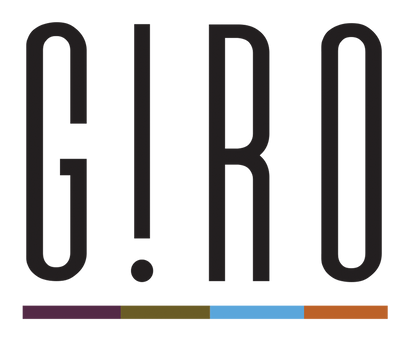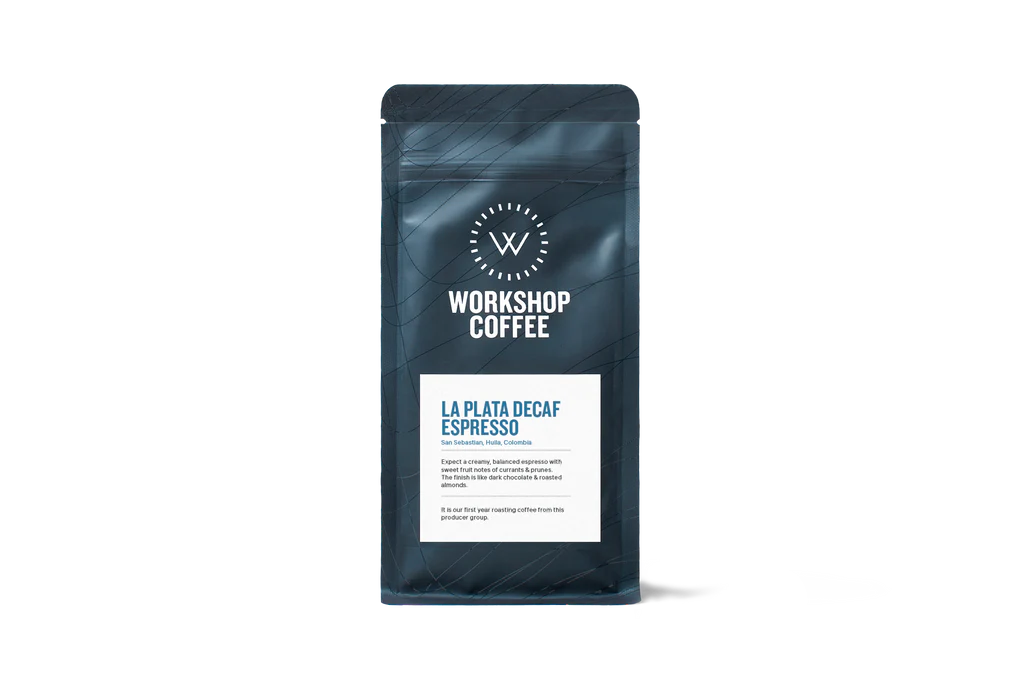La Plata Decaffeinated - Espresso/Filter - 250g
£14.00
EXPECT A CREAMY, BALANCED ESPRESSO WITH SWEET FRUIT NOTES OF CURRANTS & PRUNES. THE FINISH IS LIKE DARK CHOCOLATE & ROASTED ALMONDS.
COFFEE INFORMATION
Producer 7 farmers in La Plata
Harvest July, 2023
Process Hand-harvested, traditionally depulped & dry fermented, fully washed & E. A. sugar cane decaffeinated.
Variety Caturra, Castillo & V. Colombia
Region San Sebastian, La Plata, Huila
Country Colombia
Altitude 1,750 to 2,000 metres
Arrival October, 2023
PAYING CLOSE ATTENTION TO ALL THE COFFEES WE BUY MEANS WE HAVE ALWAYS TREATED OUR DECAF PURCHASES WITH THE SAME CARE AND RIGOUR AS ALL LOTS WE BUY, BUT THIS YEAR WE HAVE SELECTED AN ENTIRE LOT TO BE DECAFFEINATED IN COLOMBIA.
The Producers
This lot from La Plata in Colombia’s Huila region has been created by combining high quality outturns from 7 farmers in and around the small parish of San Sebastian. Producers such as Gina Samara Jalvin, Gloria Isabel Garcia, Ivonne Andrea Oviedo and Laura Ramirez are amongst the larger contributors.
The coffee varieties being tended to are typical for the region, comprising Caturra, Castillo & Variedad Colombia. These are planted amongst Cambulo and Guamo trees, which are nitrogen fixing, as well as Cedro and other native trees which provide shade and increase biodiversity on the farms.
During harvest the cherries are selected by hand when ripe, traditionally depulped and fermented before being fully washed and dried either on covered patios or raised beds in polytunnels. Once cupped, assessed and collated the lots are sent for decaffeination.
The Decaffeination Process
Having tasted various options in their regular and subsequent decaffeinated state we have been able to secure a coffee that has a sweet, clean cup profile and has best maintained its character and integrity after the decaffeination process.
For the last eight years we’ve solely purchased decaffeinated coffees that have undergone the Sugar Cane Ethyl Acetate process. Not only does this method provide a secondary income to the producing country, but the green coffee only needs to be transported once rather than twice. Obviously more eco-friendly and less costly, it has a huge impact on cup quality too. The conditions in which coffee is transported are rarely conducive to preserving quality, and so avoiding this process from happening twice is always beneficial for the cup. The coffee, having been shipped only once unlike most decaf options that arrive into the UK via Mexico, Canada or Germany, tastes all the fresher for it.
The actual solvent doing the work of decaffeinating the green coffee at Descafecol is derived from fermenting and making an alcohol from sugar cane. This is combined with spring water and is used to wash the caffeine out of the steamed green coffee until less than 0.1% of the original caffeine content remains.
Discover more on our approach to decaffeinated coffee in this video.
The Exporter
Typically, Caravela operate an 80/20 model, working with a vast majority of smallholders and a minority of farmers with large coffee estates. In their latest impact report 87% of their producing partners had farms of less than 5 hectares in size. More than half of the producers they worked with were visited by their PECA team, and in Colombia alone they are working with 1,746 producers across 52 communities.
As regards their PECA program, they have said the below:
“Coffee growers are the heart of our business model, without them we could not maintain and sustain this value chain. They are responsible for producing the best coffees that delight us every day. The Coffee Growers Education Program (PECA) has developed a symbiotic relationship between coffee growers and Caravela since we’re always learning from each other. For many years, we have accumulated experiences throughout experimentation and work that provides tools to empower and educates coffee growers, resulting in consistent high-quality coffees”
© 2025 G!RO .

